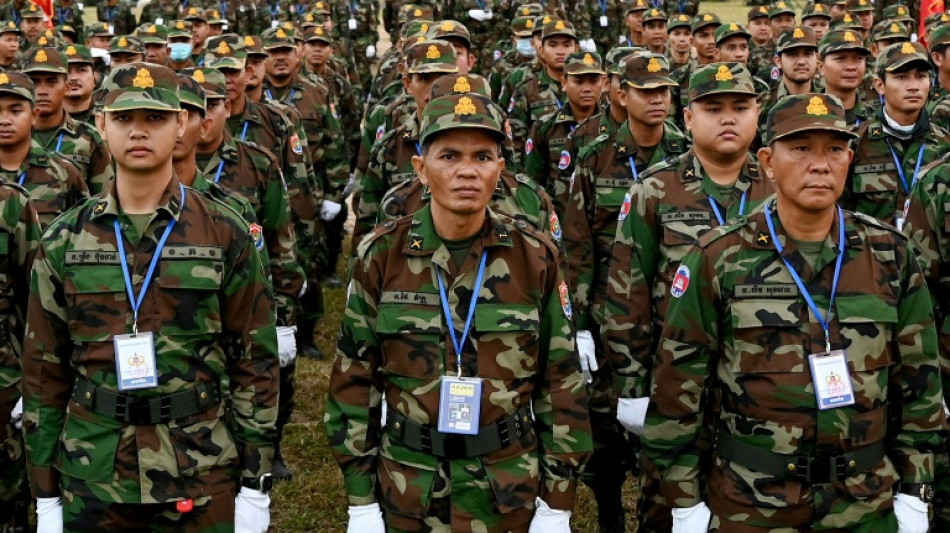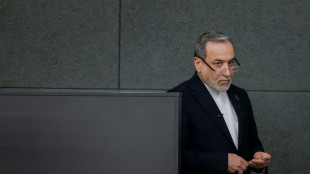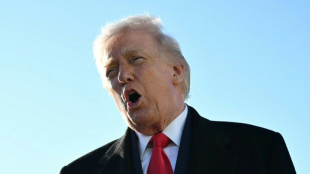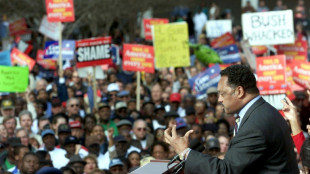

Anxiety and pride among Cambodia's future conscripts
The generation of Cambodians who may find themselves in the firing line when the country introduces military conscription is split between quiet pangs of anxiety and proud proclamations of patriotism.
"My family is poor. If I am called in for the service, I am worried that my family might face financial issues," 25-year-old tuk-tuk driver Voeun Dara told AFP in Phnom Penh. "It is worrisome for me."
Citing rising tensions with Thailand, Prime Minister Hun Manet says Cambodia will next year activate a long-dormant law requiring citizens aged 18 to 30 to enlist in the military.
Hun Manet has proposed conscripts serve for two years to bolster the country's 200,000 personnel after a territorial dispute boiled over into a border clash, killing one Cambodian soldier in late May.
Graphic design student Ray Kimhak's brother-in-law, a volunteer soldier, has already been deployed to the countries' 800-kilometre-long (500-mile) border.
But the 21-year-old says he would gladly join him if compelled by conscription.
"He said it was a bit difficult to sleep in the jungle, and it rains a lot. But these difficulties don't discourage me at all," Ray Kimhak told AFP at his university in the capital.
"We are ready to protect our territory because when it is gone, we would never get it back."
- 'We should be ready' -
Cambodia's conscription law dates back to 2006 but has never been enforced. Hun Manet has said it will be used to replace retiring troops, though it is unclear how many citizens are set to be called up.
The country of 17 million has a long and dark history of forced enlistment.
Pol Pot's Khmer Rouge communist regime, which ruled from 1975 to 1979, conscripted fighting-aged men, and sometimes children, into its ranks as it perpetrated a genocide that killed two million.
One 64-year-old who was conscripted by the Khmer Rouge at 17 told AFP he supported the government's decision, despite standing on a landmine during his time as a soldier.
"I was forced to be a soldier by Pol Pot," he told AFP, speaking on condition of anonymity from the Thai border town of Sampov Lun.
"Being a soldier is not easy, but I support the government's plan of military conscription in the face of a border dispute with Thailand. We need to protect our land."
Under the newly activated conscription legislation, those who refuse to serve in wartime would face three years in prison, while peacetime refuseniks would face one year behind bars.
Sipping green tea at a cafe, 18-year-old IT student Oeng Sirayuth says he fully supports Hun Manet's call to arms.
"We should be ready, because tension with our neighbouring country is growing," he said. But personally he hopes for a deferral as he finishes his studies.
"I am a bit reluctant because I have never thought that I will have to join the military service," he said.
"I think 60 percent of young people are ready to join the military, so these people can go first, and those who are not yet ready can enter the service later."
Under the modern-day conscription legislation, women will be allowed to opt for volunteer work rather than military service.
But 23-year-old internet provider saleswoman Leakhena said she stands ready to serve on the frontlines.
Last month her family delivered donations to Cambodian soldiers patrolling the border, where tensions have spiked with Thailand over a disputed area known as the Emerald Triangle.
"We have to do something to protect our nation," said Leakhena, speaking on the condition that only her first name was revealed.
"I feel proud for our soldiers. They are so brave," she added.
- 'Trust needs to be earned' -
Cambodia allocated approximately $739 million for defence in 2025, the largest share of the country's $9.32 billion national budget, according to official figures.
Hun Manet has pledged to "look at increasing" the defence budget as part of reforms to beef up the military.
But one young would-be conscript urged the government to defer its plans as the country recovers its finances from the Covid-19 pandemic.
"Our economy is still struggling," said the 20-year-old fine art student, who asked not to be named.
"We are in the state of developing our country, so if we enforce the law soon we might face some problems for our economy."
Political analyst Ou Virak also said Cambodia's military faces challenges from within as it seeks to win buy-in from a new generation of conscripts.
"Military training, chain of command, and military discipline are all issues that need to be addressed," he told AFP.
"For conscription to work and be generally supported and accepted by the people, trust needs to be earned."
H.Giordano--IM



